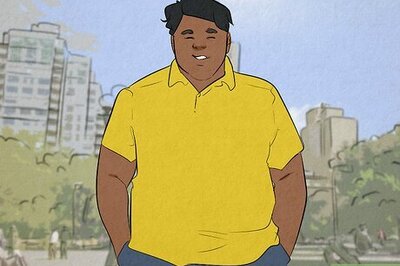
views
It’s been months since the beginning of the COVID-19 pandemic and those who have survived the infection are beginning to notice that not all the symptoms of the disease go away soon after the virus is eliminated from the body. Some symptoms can stay for months, continuing to have a debilitating effect on your life. Scientists, doctors and health experts ? especially those based in the UK ? are calling this long COVID.
Long COVID instead of full recovery
The term long COVID is patient-made, meaning that a patient who suffered this condition named it. In this case, it was Elisa Perego, a research associate at the University College London, who first used this term on Twitter in May 2020. Many studies which have discussed long COVID, however, have not used this term. Instead, they refer to long COVID as post-acute COVID-19, post-COVID syndrome and chronic COVID-19.
The term refers to not recovering fully from COVID-19 and continuing to experience the same or worse symptoms. The most important thing to note about this condition is that it does not show up only in those who have had severe COVID but also in those who were previously healthy and had only mild infection. With many patients reporting symptoms of long COVID, the World Health Organization (WHO) and healthcare experts at institutions like UK’s National Health Service as well as the British Medical Journal (BMJ) are now gearing up to record what happens in long COVID and how to deal with it.
Symptoms of long COVID
Even if you had mild COVID-19, it’s not necessary that your long COVID experience will be mild too. Instead, your symptoms can be quite severe. The following are said to be some of the most common symptoms of long COVID:
- Profound fatigue
- Heart problems like myocarditis, arrhythmia, heart failure
- Breathlessness
- Cough
- Muscle aches
- Headaches
- Loss of smell
- Loss of taste
- Lung, gut or kidney damage
- Post-traumatic stress disorder
- Continued brain fog, confusion, loss of memory
How to deal with long COVID
While the scientific community, led by the WHO, is gearing up to conduct proper investigations into the causes, effects and treatments of long COVID, the best thing you can do right now is keep monitoring the condition of the person recovering from COVID-19. Ask the patient to note the duration, intensity and frequency of their symptoms. And if the symptoms are not getting better despite all the care, consult a doctor without delay.
COVID-19 is a new disease. Until the scientific community has all the answers needed to ensure your wellbeing, it’s best to give yourself all the time you need to recover from the infection fully before getting back to the old ways of life. So, if you’re recovering from COVID-19, pace yourself, take things slow and take all the steps you need to in order to get your health back in shape.
For more information, read our article on Post-COVID Care.
Health articles on News18 are written by myUpchar.com, India’s first and biggest resource for verified medical information. At myUpchar, researchers and journalists work with doctors to bring you information on all things health.
Read all the Latest News and Breaking News here



















Comments
0 comment